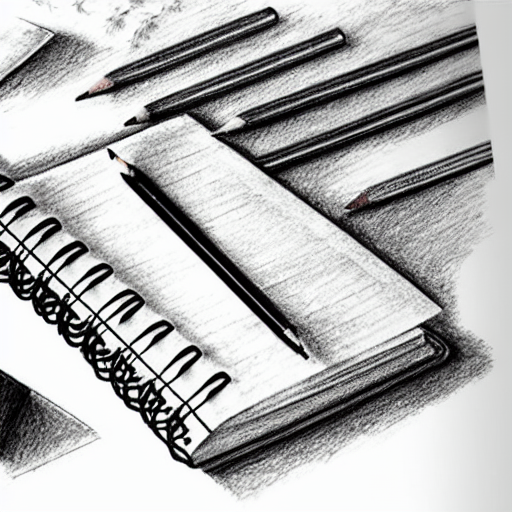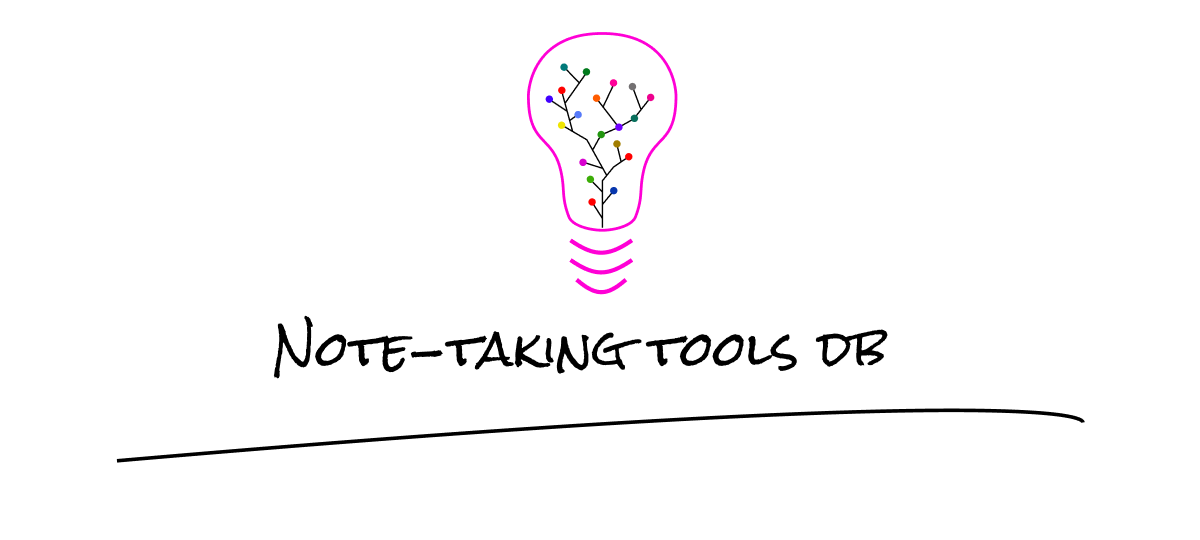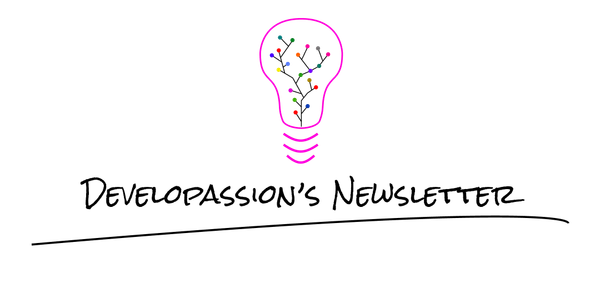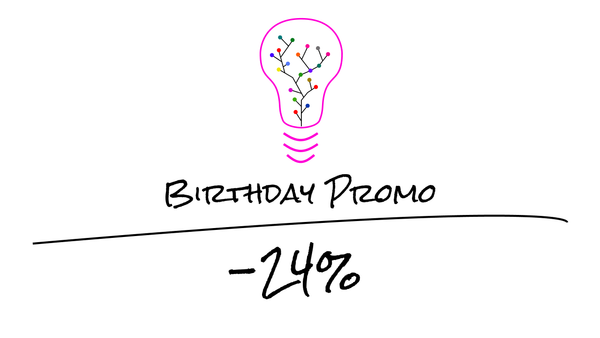Why is Personal Knowledge Management (PKM) useful
The key reasons why Personal Knowledge Management is useful

In this article, I want to discuss the reasons why I find PKM useful and valuable. Some are obvious. Some less so.
The world is increasingly complex
The world becomes more and more complex, and we have to deal with ever-increasing volumes of (noisy) information. And the trend is only accelerating as the pace of innovation increases. As knowledge workers, lifelong learners, and members of modern society, we have to adapt and learn to deal with this reality. We have to stay on top and adapt quickly. We need to excel at critical thinking, deep thinking and creative thinking. That's the only way for us to be able to cope with the burden and noise of the modern world. I want to argue that Personal Knowledge Management (PKM) in particular and Knowledge Management (KM) in general are part of the solution. They can help us become better humans ™.
We need to externalize our thinking
A vast majority of knowledge workers and lifelong learners I know seem to rely heavily on their brain to retain information. It is quite a sad state of affairs, because human brains are not that reliable... As a slowly aging lifelong learner myself (I'm almost 40), I've come to realize that my memory is less and less trustworthy. What used to be easy to recall becomes harder, and memorizing new information is slowly becoming more and more difficult. And I'm still quite young (seriously 😂). This is bound to worsen over time!

Human brains are incredible, but they are mainly optimized for, and focused on survival. Our mental "knowledge management" and "knowledge organization" systems are not made for deep thinking. One obvious limitation we have is our tiny short-term memory. It's impossible to retain more than a few items at a time in our short-term memory, making it impossible to think deeply about interconnected ideas and their relationships. In order to think deeply, we have no choice but to externalize our thinking in some way.
One way of externalizing our thinking is by writing things down. As I often say, writing is thinking. Another approach is to create visualizations (e.g., mind maps), drawings, etc. Whenever I sit down and write an article, I'm actually thinking much more deeply about the ideas I'm covering than I'd be able to if I were only using my brain. Logical thinking and analysis lead to thoughts, observations, ideas and conclusions, but it's almost mandatory to store the intermediary results of our mental processes. That's why having Post-It notes and/or whiteboards is so useful for brainstorming sessions! Without this, we would forget most of the interesting things with come up with, and we wouldn't be able to go further. But there's more!
Writing our ideas and thoughts down, whether on paper or using digital tools, is an enabler for deep thinking. Once ideas are in front of our eyes, whether on a wall with Post-It notes, on an infinite canvas or in a note-taking tool such as Obsidian, it becomes much easier to go deeper on any topic we are exploring, as we can see the ideas in front of us and explore different aspects/topics/sub-topics.
Finally, once you accept the idea that it's useful to externalize your thinking, the next step is to consider this as a habit to create and maintain. This brings us to Personal Knowledge Management (PKM), which is focused on the idea that we can create personal knowledge bases for ourselves and leverage those to think better.
What is Personal Knowledge Management (PKM)?
Before we get to why Personal Knowledge Management (PKM) is useful, let's first try to quickly define what it is. Personal Knowledge Management (PKM) is a process we can use to capture and organize our ideas, thoughts, knowledge and personal information. That process is loosely defined, because there are as many variants as people "doing" PKM. It's both a boon and a bane. It's great because it means that you can do whatever you want. But it's also hard because there are many pitfalls and way too many options out there. Your system can be as simple or as complex as you want/need. PKM is thus a way to "manage" (we really need a better term!) knowledge and ideas. PKM tools allows storing, organizing, linking and exploring the relationships between the elements in our knowledge base.
Personal Knowledge Management (PKM) is also a skill. It requires practices to know what to "capture", what matters, what doesn't, what to explore, how to explore, etc. Many people approach PKM with the wrong mindset, thinking that they need to capture anything and everything. It's actually counter-productive. Whatever you capture should serve your personal or professional goals. If it's not the case, then you're just having fun, and that's okay if you're aware and don't mind.

PKM is linked with many activities: reading, listening, watching, observing, learning, researching, personal development, etc. As PKM is a generic process, there are many approaches. The simplest is using pen and paper without any particular system, writing things down. We can also use a wide array of tools (analog and/or digital) and techniques to create visualizations (e.g., mind maps, concept maps, Venn diagrams, quadrant, trees, pyramid charts, fishbone diagrams, etc), and link ideas together.

My goal here is not to explore the tools and techniques though. Check out my other articles about PKM if you're curious, and the PKM library.

What is a Personal Knowledge Management System (PKMS)
As we've seen, PKM is an abstract and generic process aiming to "manage" knowledge and ideas. A Personal Knowledge Management System (PKMS) is a concrete implementation of PKM. When someone dives into PKM, the first thing they do (consciously or not) is design their own system. For instance, mine currently relies mainly on Obsidian for digital notes, journaling and periodic reviews. I combine Obsidian with pen & paper, voice capture and e-mails for capturing information/knowledge. By the way, I've created the Obsidian Starter Kit based on it.

I advise you to be intentional about your PKM system. You need one, and you should design yours purposefully, based on your needs and goals. That being said, I also advise you to keep things as simple as possible for as long as possible. The first step is building the habit of "doing" PKM, and just like all habits, it's easier to create it when it's easier to do it! When you start, focus on doing, not researching the best tools and techniques. Do invest in your PKM system, but only when you're certain that you need more. You'll add complexity later, if needed, and only when needed.
What are the benefits of Personal Knowledge Management?
Personal Knowledge Management is a valuable skill for knowledge workers because it can help you understand, learn and retain more/faster. It can thus help you stay up to date and relevant in your field. Externalizing your thinking will let you improve and connect ideas iteratively and incrementally. For instance, each time you go back to a note, you can improve it, refine it, refresh it.
Through the exploration of knowledge and ideas, Personal Knowledge Management is definitely a great way to become more creative. There's a compounding effect too. The more insights and ideas you capture and mix, the more you invite creativity in. As an author and content creator, my PKM system clearly plays a key role for my work. It helps me uncover interesting ideas, weird combinations, topics to cover, angles that I might not have thought about, etc.
It is also wonderful for personal development, as you can explore your own thoughts and ideas, and know yourself better. Through activities such as note-taking and journaling, you can shed more light on how you feel, what you have in mind, what you really want, etc. It is thus a great tool for self-introspection.
PKM is also really helpful for decision-making, as you can better analyze information and come-up with more creative solutions to your problems.
I would also say that PKM plays a big role for personal organization and productivity. You can rely on your PKM system to clarify your goals for the future, create plans and organize your work.
By managing your knowledge properly, you'll get rid of some issues with the human brain: no need to memorize everything, no need to refresh the information you've memorized, no problems with recall, etc.
Last but not least, I also think that PKM helps to feel less overwhelmed by thoughts and information. Since you can externalize those, it becomes easier to manage. When a thought obsesses you, it's hard to get rid of it. But when you write it down, you can observe it, and decide if you really need to care or not. The same goes with information and data that the world throws at you.
Note-taking and PKM are means to an end
No matter what you take away from this article, please keep the following point in mind. Note-taking and PKM are nothing but tools. Choosing the perfect note-taking tool is pointless. Spending countless hours designing the perfect PKM system is not necessary. Focus on your personal and professional goals. From there, you'll know what you need to learn, what you need to research, how much information you need to "capture", etc. Focus on your goals, not on the means you use to achieve those!
Conclusion
In this article, I've explained why it's useful and sometimes even necessary to externalize our knowledge. I've introduced Personal Knowledge Management (PKM) and PKM systems, and have listed its key advantages. Hopefully, this should convince you that PKM is worth the effort!
That's it for today! ✨
About Sébastien
I'm Sébastien Dubois, and I'm on a mission to help knowledge workers escape information overload. After 20+ years in IT and seeing too many brilliant minds drowning in digital chaos, I've decided to help people build systems that actually work. Through the Knowii Community, my courses, products & services and my Website, I share practical and battle-tested systems. You can follow me on X 🐦 and on BlueSky 🦋.
I am an author, founder, and coach. I write books and articles about Knowledge Work, Personal Knowledge Management, Note-taking, Lifelong Learning, Personal Organization, and Zen Productivity. I also craft lovely digital products.
If you want to follow my work, then become a member and join our community.
Ready to get to the next level?
If you're tired of information overwhelm and ready to build a reliable knowledge system:
- 🎯 Join Knowii and get access to my complete knowledge transformation system
- 📚 Take the Course and Master Knowledge Management
- 🚀 Start with a Rock-solid System: the Obsidian Starter Kit
- 🦉 Get Personal Coaching: Work with me 1-on-1
- 🛒 Check out my other products and services. These will give you a rock-solid starting point for your note-taking and Knowledge Management efforts






